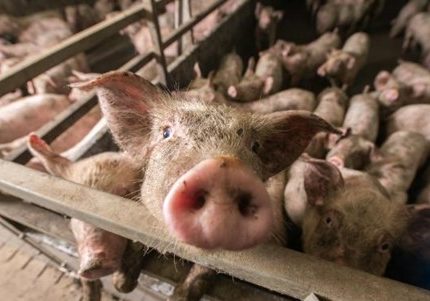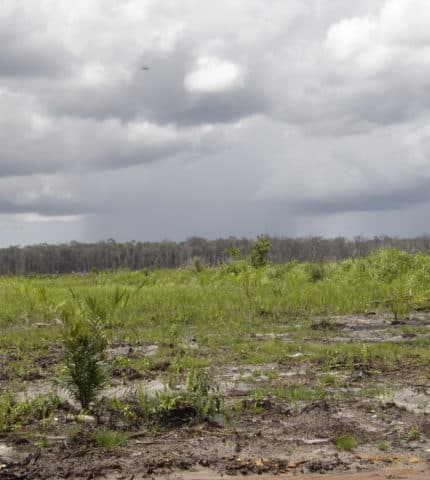Climate change and the extinction crisis are two sides of the same coin. Neither problem can be solved without the other. We must urgently address the use of fossil fuels, relentless deforestation and intensive animal agriculture.
Healthy diverse ecosystems such as forests, grasslands, wetlands and oceans play a vital role as carbon sinks and they do it best when they are thriving with wildlife. Yet as the planet warms, suitable habitats for wildlife shift and shrink, exacerbating species endangerment and jeopardising ecosystem health. Whales lose their krill, birds lose their wetlands and koala’s lose their gumtrees—sadly some species will see their habitats disappear altogether.
Native vegetation and habitat is also destroyed to make way for intensive animal agriculture, which in turn is responsible for 14.5-16.5% of all man-made greenhouse gas emissions—equivalent to all the emissions from transport.
What Humane World for Animals Australia is doing
Humane World for Animals Australia has been consistently campaigning on climate change for over 25 years. Two decades ago our scientific nomination led to climate change being recognised in Australia law as a ‘key threat’ to Australia’s wildlife and we demanded an end to runaway fossil fuel consumption. Our habitat protection programs are vital to maintaining native vegetation as carbon sinks.
Learn more with a deep dive on Humane World for Animals Australia’s history campaigning against climate change.
Internationally, we have campaigned vigorously at UN Climate Conferences against deforestation and for truth in forest carbon accounting.
In the mid-2000s Humane World for Animals Australia inspired the Australian Government to commit a $200 million fund to combat carbon emissions from illegal logging and deforestation in south-east Asia.
Right now we are working hard to persuade global governments to address #thecowintheroom —emissions from industrial agriculture.
What you can do
One thing we all have in our control is our diet! Giving up steak and other animal products and transitioning to a plant rich diet is one of the most effective personal changes each of us can take to reduce our emission footprint. Get tips for a climate-friendly diet on our blog here.



